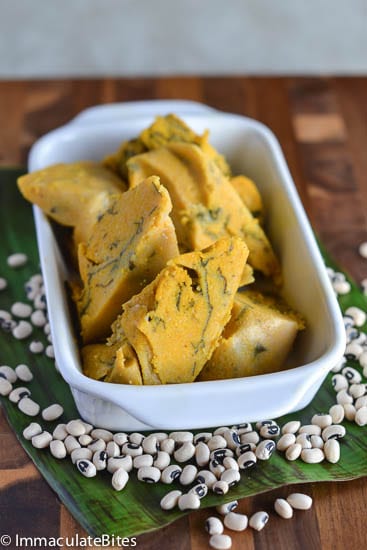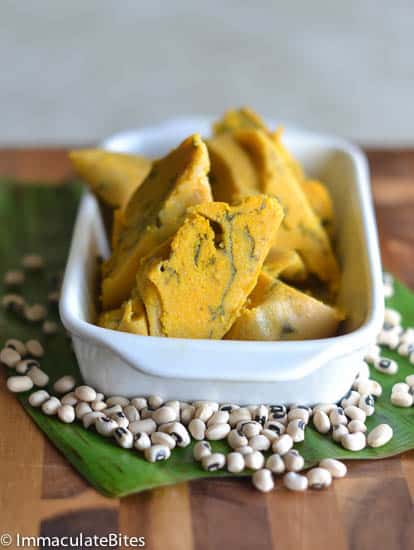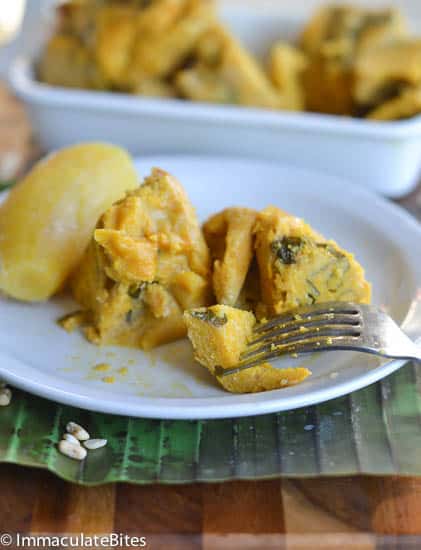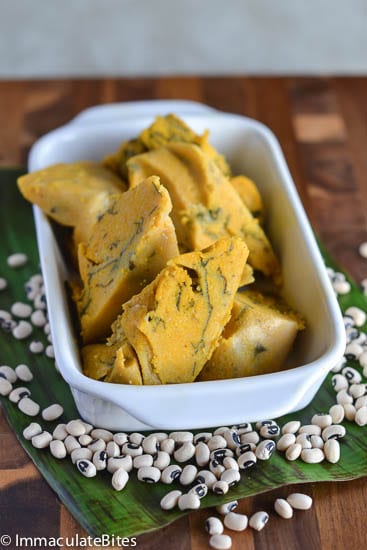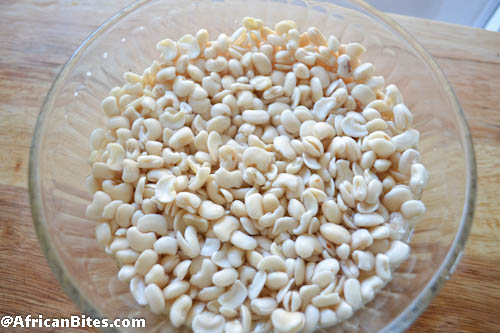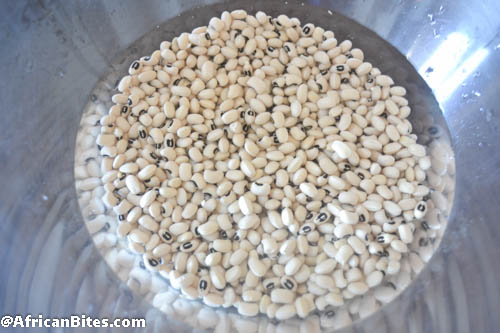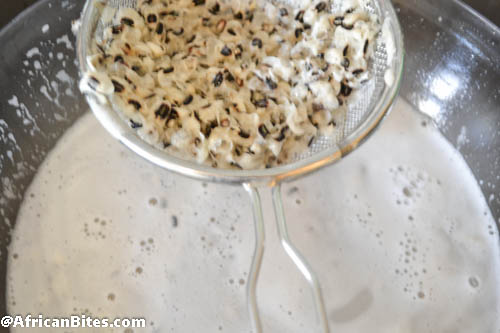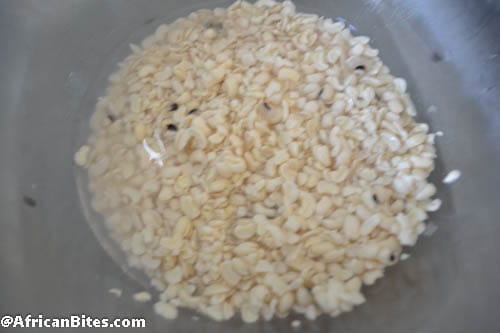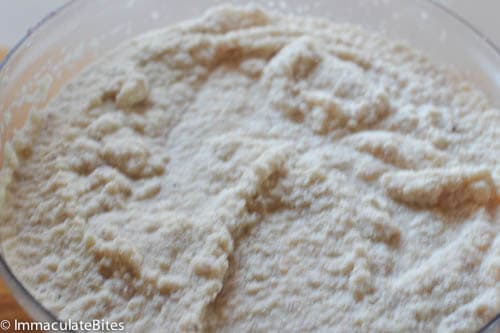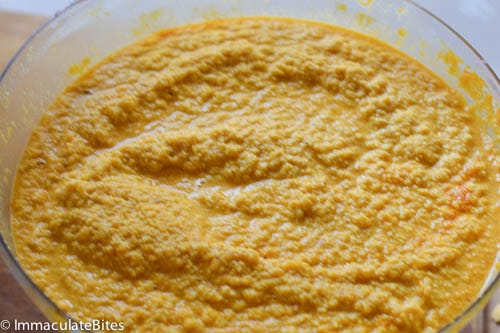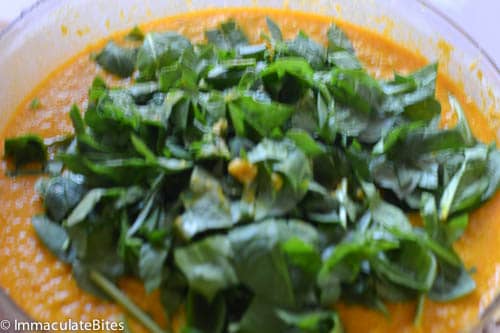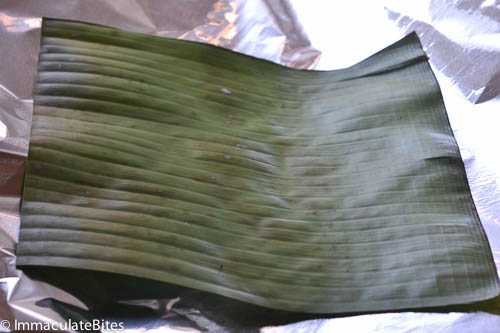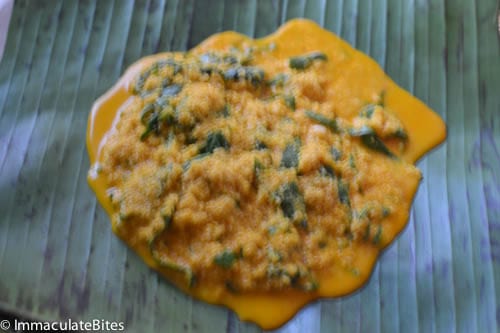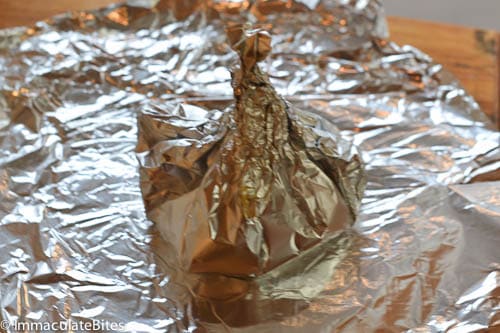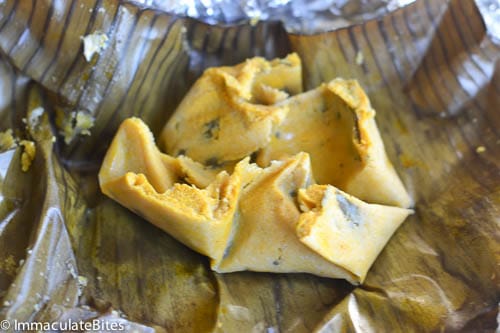Did you know Black-eyed peas are native to West Africans? They have been enjoyed for thousands of years throughout the continent. It is thought to have reached the United States during the Slave trade. No wonder it so popular in the South especially with African Americans. Growing up in West Africa, specifically Cameroon, I never had these beans whole – always masquerading in a pudding form and under the aliases : Koki Beans, ekoki, Haricots Koki, Koki de Niébé, Gateau de haricots, or Bean cake.
No wonder black-eyed peas are so popular in the South especially with African Americans. These delectable bites are sold every in the Cameroon and are popular in restaurants, bars and have become some what become a street food, sold by women vendors to hungry pedestrian – myself included. I would honestly say some of the best Koki beans I have had the pleasure of eating, have been from these street vendors. They sure know how to get the consistency right – spot on; moist and tasty.
So why aren’t these bean pudding cooked frequently? Because it can be time consuming: soaking, washing, peeling, grinding, pounding (whisking), and assembling the Koki beans are no easy task.
However, there are ways to cut down on this process; you can use peeled beans, they are sold in African Stores hat would cut your time in half . They do freeze well, so you can wash and peel the beans when you have the time and freeze , until the day of . Serve this with any starchy side. My favorite is boiled ripe plantains. Here a couple of tips to keep in mind when making Koki Beans Recipe updated.
